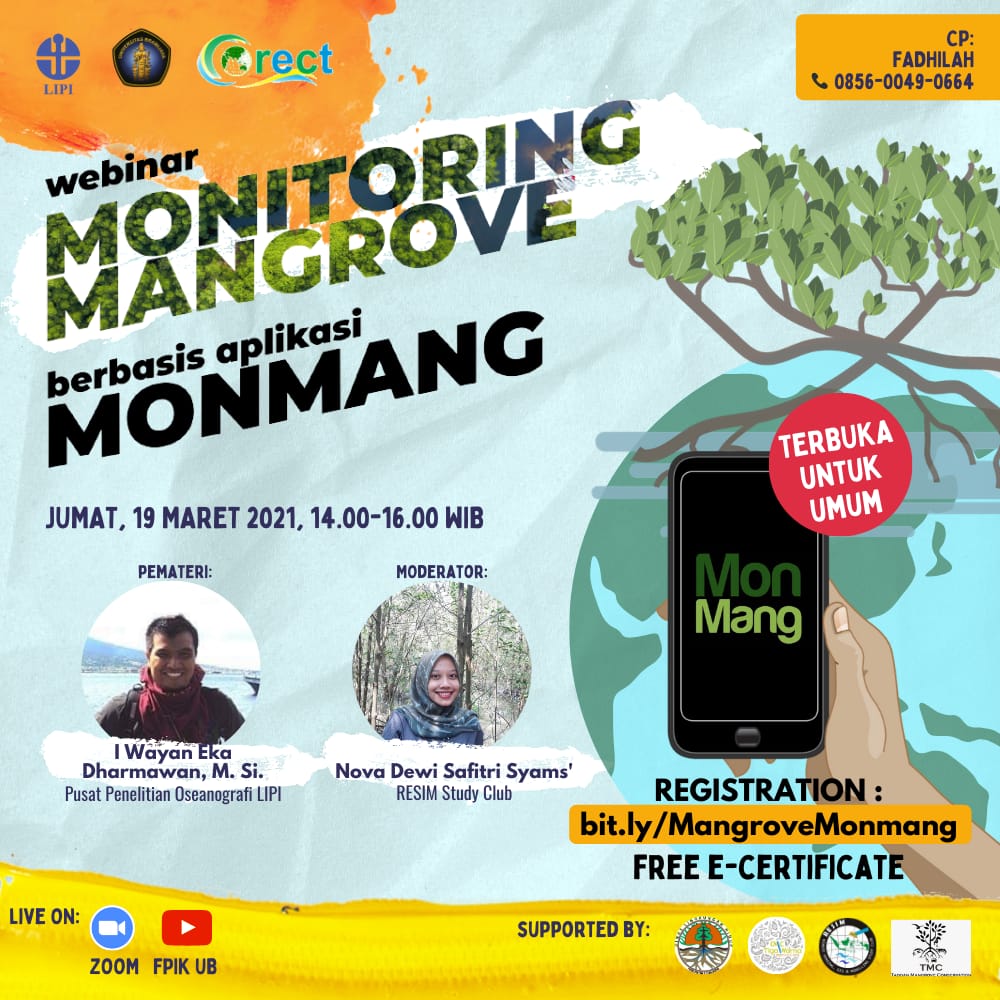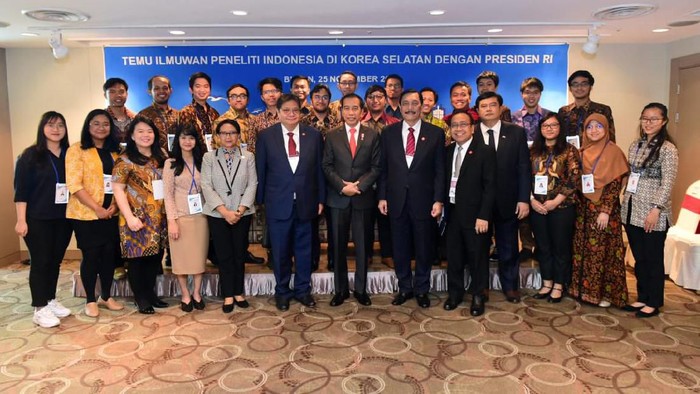Indonesia memiliki area mangrove terluas di dunia (3,5 juta Ha), merepresentasikan lebih dari seperlima luasan mangrove dunia, dengan keragaman spesies paling tinggi di dunia. Walaupun begitu, data dari KKP menunjukkan angka kerusakan mangrove yang cukup tinggi, di mana 52% atau 1,82 juta Ha area mangrove Indonesia dalam kondisi rusak (KKP, 2020). Di sisi lain, ketersediaan data yang standar mengenai kondisi mangrove di Indonesia masih menjadi tantangan besar untuk diselesaikan.
Keberadaan data yang baik akan memberikan manfaat yang luar biasa besar, bukan hanya untuk kegiatan pengelolaan mangrove, akan tetapi juga untuk penelitian lebih jauh mengenai ekosistem mangrove. Untuk tujuan tersebut, diperlukan kolaborasi antar pihak untuk terlibat bersama dalam monitoring mangrove dengan tool yang standar. Keterlibatan stakeholder yang terkait dengan ekosistem mangrove seperti akademisi, NGO, Pemerintah Daerah dan Kelompok Masyarakat Konservasi akan menjadi bagian penting dalam implementasi Citizen Science. Pada saat ini, P2O LIPI telah mengembangkan MonMang, aplikasi berbasis Android yang mempermudah aktivitas monitoring mangrove. Bermacam fitur yang terdapat dalam aplikasi ini memungkinkan siapapun untuk dapat terlibat aktif dalam kegiatan monitoring mangrove.
Untuk membekali civitas akademika UB dan stakeholder mangrove, pada Hari Jumat, 19 Maret 2021 Pukul 14.00 – 16.00, dilaksanakan webtraining penggunaan Monmang melalui platform webconference Zoom dan livestream melalui kanal Youtube FPIK UB. Kegiatan ini diikuti oleh 300 peserta, dengan pemateri adalah I Wayan Eka Dharmawan,M.Si, peneliti mangrove dan ketua tim pengembangan aplikasi Monmang dari P2o LIPI. Kegiatan ini merupakan bagian dari rencana kolaborasi antara FPIK UB dengan P2O LIPI, meliputi aktivitas pemantauan mangrove berbasis Monmang, kegiatan penelitian dan aktivitas lainnya khususnya di area mangrove Jawa Timur.
Link video training:


